
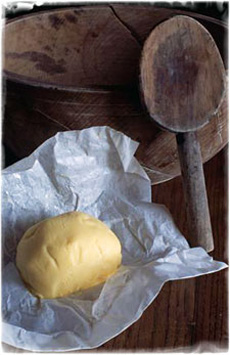 It takes 21 pounds of fresh, wholesome cow’s milk to make each pound of butter like the pat of butter on wax paper above at a farm in Brittany. Photo courtesy of WebExhibits.org.
It takes 21 pounds of fresh, wholesome cow’s milk to make each pound of butter like the pat of butter on wax paper above at a farm in Brittany. Photo courtesy of WebExhibits.org.
|
 |

Artisanal Butter
Flavored Butter, Compound Butter, Butter Recipes, Simply Better Butter
Artisanal butters have always been a regional affair: local farmers knowing how to work with their herds and their pastures to make a simply delicious product. Butter was never a huge production item, and what was made in the region stayed in the region. Now, as a result of prestigious national awards earned by regional dairies, demanding chefs and consumers all over America, and growing chains like Whole Foods and Wild Oats able to more broadly distribute artisan butters.
What makes a butter better?
- Cows that are fed and cared for in a way that increases the flavor and quality of their milk. Cows that graze on pasture produce tastier milk than cows that are penned in and given feed.
- The terroir: As with wine grapes, the flavor of the milk reflects the region where the cow grazed as well as what it was fed, making the flavor of the milk and thus the butter distinctive. Supermarket butter combines milk from many regions and producers to make one homogenous-tasting batch.
- Small batch processing—to maintain quality and control of flavor nuances, few recipes can be expanded exponentially with success.
- Higher fat content—often 82% to 86% compared to 80% for supermarket butters (higher fat means lower moisture and greater spreadability as well as better mouthfeel).
If you think all butters are the same, try different organic and artisan brands and taste the difference for yourself.
| Butter Articles |
Butter Reviews |
|
|
| Butter Recipes |
|
Nibble Tip
All butters don’t taste the same—although they do have the same calories. For your calories, eat the best. Buy small amounts of two different butters and taste them against each other: straight or on bread. Then use up the butter you didn’t prefer and buy a third butter to test against your original favorite. Like finding your favorite Chardonnay, keep trying everything you come across until you find the one you love. It does make a difference, whether on toast or pancakes, buttered vegetables, or in mashed potatoes. Refined palates can tell the difference in baked goods too.
|
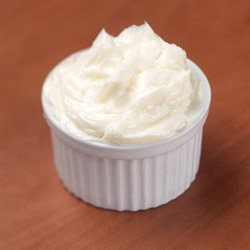 Beecher’s Cultured Butter is available at BeechersHandmadeCheese.com. Beecher’s Cultured Butter is available at BeechersHandmadeCheese.com.
|
Cooking With Butter
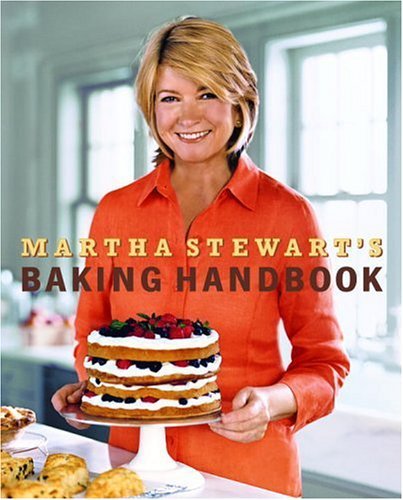 |
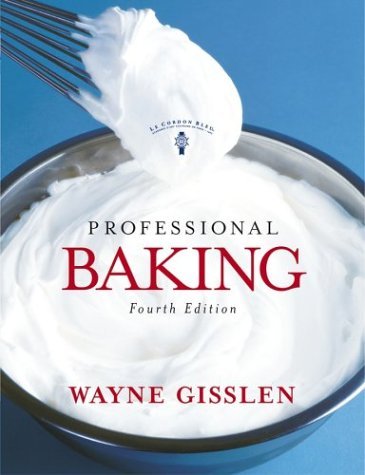 |
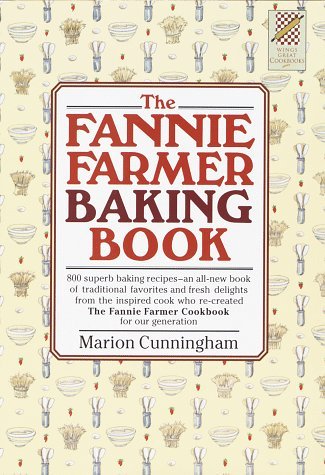 |
| Martha Stewart's Baking Handbook, by Martha Stewart. Clear recipes and great organization: The chapters, which cover all baking stops, begin with relevant tips, followed by notes on equipment and techniques, all photo-illustrated. Click here for more information. |
Professional Baking, by Wayne Gisslen. Professional Baking brings aspiring pastry chefs and serious home bakers the combined talent of Wayne Gisslen and the prize winning Le Cordon Bleu in one volume. Click here for more information. |
Fannie Farmer Baking Book, by Marion Cunningham. A superb collection of more than 800 recipes drawn from both America's rich past and new culinary discoveries. Click here for more information. |

|






